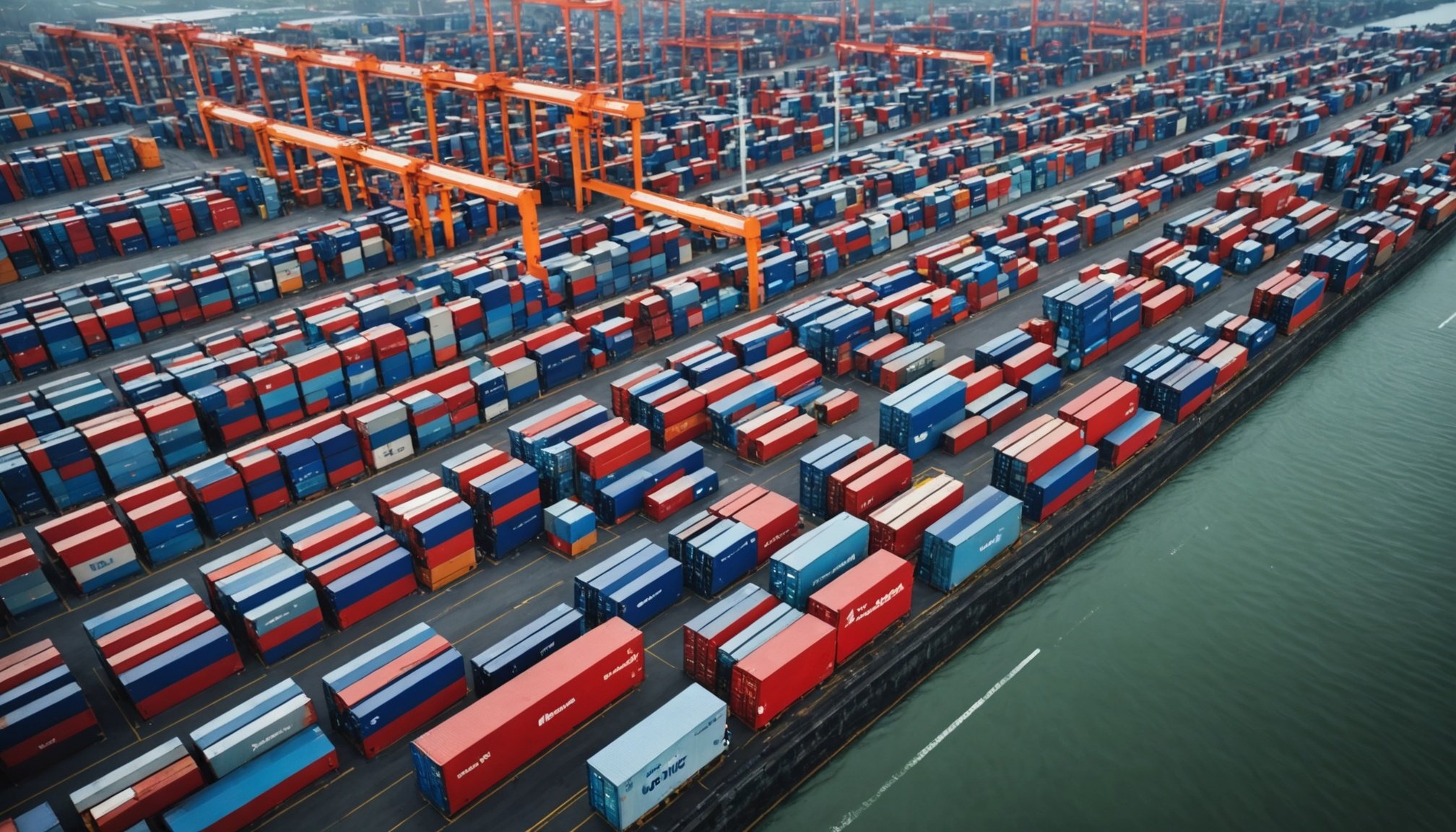Understanding Data Management in UK Logistics
Data management plays a crucial role in enhancing logistics efficiency across the UK. Effective data management practices provide a significant advantage by enabling organisations to streamline their operations and make informed decisions. Within the UK’s logistics sector, these practices often involve supply chain optimization through the use of advanced software systems that gather and analyse data in real-time.
Currently, data management in UK logistics is characterised by a focus on integrating diverse data sources to create unified systems. This integration enables companies to have a holistic view of their supply chain operations, allowing for effective decision-making and operational improvements. However, maintaining data consistency and accuracy across these systems remains a perpetual challenge.
In the same genre : Mastering Machine Learning for Cutting-Edge Fraud Detection: The Definitive Guide for UK Financial Services
Key challenges faced in data management are manifold, with the primary issues involving data fragmentation and siloed information systems. These challenges impede the ability of organisations to harness the full potential of their data. Furthermore, ensuring data privacy and compliance with legal standards adds layers of complexity. Addressing these challenges requires both innovative approaches and robust technology solutions to mitigate risks and enhance overall logistics performance in the UK.
Strategies for Leveraging Data in Supply Chain Management
Data-driven strategies are pivotal in modern supply chain management, enhancing logistics efficiency and decision-making. Integrating data across supply chain processes can be achieved through several practical techniques. Real-time data analysis allows organisations to swiftly respond to market changes and customer demands, ensuring they remain competitive.
Also to read : Elevate your video content using an AI voice over generator
One effective strategy involves the use of advanced software systems that compile and analyse vast amounts of data, providing actionable insights. These systems help in identifying patterns, predicting demands, and optimizing resources. A successful approach can also involve cross-functional teams that deploy data-driven tools to enhance collaboration across various departments.
Case studies have highlighted the transformative power of data utilization in logistics. For instance, companies implementing IoT and RFID technologies experienced significant improvements in tracking inventory and predicting supply and demand trends. These technologies offer precise data collection and foster a proactive management style.
Ultimately, adopting these strategic measures supports organisations in effectively managing their supply chains, resulting in increased efficiency and profitability. Leveraging data in logistics helps bridge the gap between operational challenges and customer satisfaction, driving growth in the competitive UK logistics sector.
Best Practices for Data Integration and Analysis
Successfully managing data integration and analysis is paramount in enhancing logistics operations. In the realm of UK logistics, embracing best practices ensures seamless data flow and effective decision-making.
Data Collection Methods
Collecting high-quality data is the foundation of data integration. Effective techniques involve automating data collection using Internet of Things (IoT) devices and Radio-frequency identification (RFID) technology. These tools capture real-time data, offering precise operational insights.
Data Visualization Tools
Data visualization is integral to understanding complex datasets. Popular tools like Tableau and Power BI transform raw data into actionable insights. These visualizations enable stakeholders to quickly grasp trends and anomalies, facilitating informed decision-making.
Continuous Data Improvement
To maintain valuable data integrity, employing continuous improvement techniques is essential. Strategies include regular audits to identify discrepancies and implementing machine learning algorithms to enhance data accuracy. Over time, evolving practices align with technological advancements, further boosting logistics efficiency through consistent data improvement.
By focusing on these best practices, the UK’s logistics sector can effectively handle complex data scenarios, optimizing both supply chain processes and overall performance. This comprehensive approach fosters informed decision-making and paves the way for increased operational efficiency.
Challenges in Data Utilization in Logistics
Data challenges within the logistics sector create hurdles for achieving smooth operational processes. Common obstacles include fragmented data systems and data silos. These issues can hinder visibility across departments, leading to inefficiencies and delayed decision-making. To conquer the challenge of data silos, fostering cross-departmental collaboration is crucial. This can be achieved by establishing integrated data platforms that encourage seamless communication among diverse teams.
Furthermore, risk management poses another layer of complexity in data utilization. Ensuring data privacy and compliance with regulations such as GDPR is mandatory, adding pressure on logistics companies. Developing robust cybersecurity measures and proactive compliance strategies is essential for safeguarding sensitive data.
Addressing these challenges allows organisations to deploy effective data-driven strategies more efficiently. Ensuring consistent and high-quality data flow across all levels of the supply chain not only mitigates risks but significantly enhances logistics performance. Focusing on eliminating cross-functional barriers through collaborative platforms and prioritizing data security measures ensures that the logistics sector can fully harness the power of data. By doing so, companies can transform these obstacles into opportunities for growth and innovation.
Future Trends in Data Management for Logistics
In the landscape of UK logistics, future trends in data technology promise to revolutionise the industry. At the forefront is the integration of artificial intelligence and machine learning, which stand to significantly enhance data analysis capabilities. These technologies enable predictive analytics, allowing organisations to anticipate supply chain disruptions and optimise logistics processes.
Another developing trend is the use of blockchain technology to improve data transparency and security. Blockchain facilitates a tamper-proof record of transactions, offering a deeper level of trust in data exchanges across the supply chain. This innovation is expected to bolster stakeholder confidence and streamline operations.
Additionally, the Internet of Things (IoT) is increasingly being adopted to provide real-time data updates. IoT devices monitor various supply chain components, delivering critical insights like fleet performance and inventory levels to decision-makers.
As these emerging technologies continue to evolve, their impact on logistics will be profound. Companies embracing these innovations stand to gain competitive advantages by improving efficiency, accuracy, and customer satisfaction. Thus, staying abreast of these future trends is crucial for any organisation looking to excel in the dynamic world of logistics.











